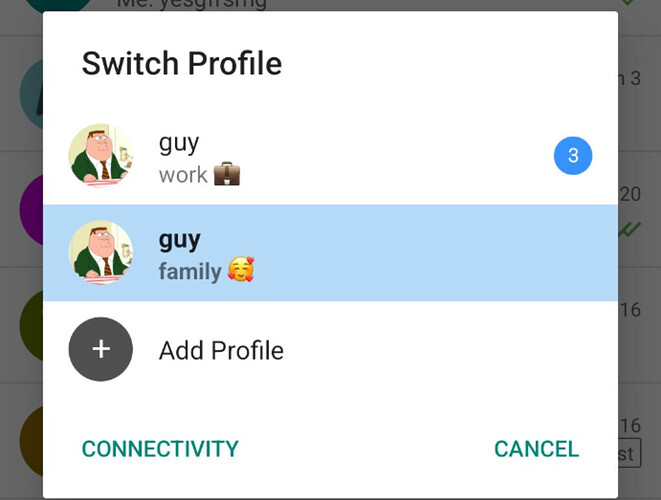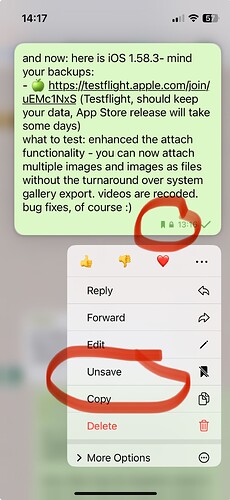One of the best sales pitches for DC is essentially, “Why should email be so clunky? Look! Email can be convenient and elegant like this! If email technology was simply allowed to progress at all in the last 20 years, it would be wonderful to use, and you can have that now, with Deltachat.”
But Folders/Tagging/however you want to think about it… is an immutible staple of the email protocol, and it is a quality-of-life feature. I personally don’t really use folders, but I know some people do, so for their sakes, it’s important that DC eventually start to support it. In principle, it’s out of character for DC to neglect a quality-of-life feature, especially if that QoL feature is already stardard email protocol.
Tags, on the other hand, would be immensely useful. We could have auto-generated tags like “DMs” and “Groups” and “Broadcasts” (whether incoming or outgoing).  And then let’s imagine there’s a collection of emails, maybe spread out through multiple threads, that pertain to a specific project. You could tag those emails so you can reference them easily instead of losing track of them.
And then let’s imagine there’s a collection of emails, maybe spread out through multiple threads, that pertain to a specific project. You could tag those emails so you can reference them easily instead of losing track of them. 
You could tag individual messages, or you could tag whole threads. I think naturally, descendents of tagged messages should inherit the tags of their ancestors (w/ the possibility of untagging the descendents). This could allow us to merge thread-tagging and message-tagging into one unified tagging system, rather than two explicit kinds of tags with separate code.
Tagging also allows you to add one message to multiple tags, which is just a miracle for keeping things organized.
I don’t know how easy it is to let IMAP folders overlap like tags rather than be separate folders that hold mutually-exclusive contents, but if it’s possible, it’s definitely the way to go.
Starring messages is also super good, but that’s basically just tagging with a star. Right now, we can just forward messages to the “Saved Messages” thread. This is a cheap imitation of starring, and it duplicates data unnecessarily, and it makes the saved messages thread messier than it needs to be.
But I hear what y’all are saying, about having a separate address for work, and a separate address for personal, and maybe family, friends, and stuff, all getting separate addresses.
However, it’s not normal to have separate addresses just for different projects. Not only is it not normal, it can’t/won’t become normal either, because it doesn’t make sense. Also, generating new accounts hardly begins to address message-tagging’s use-cases at all. So basically, this is important and worthy.
PS: Yahoo has an overactive spam filter in my opinion, and it can’t be turned off. I hate having to log into the yahoo website just to access the spam folder and mark it as not spam. But if I don’t do that, those messages won’t show up in DC. It would be better if DC just gave me access to the spam folder.

